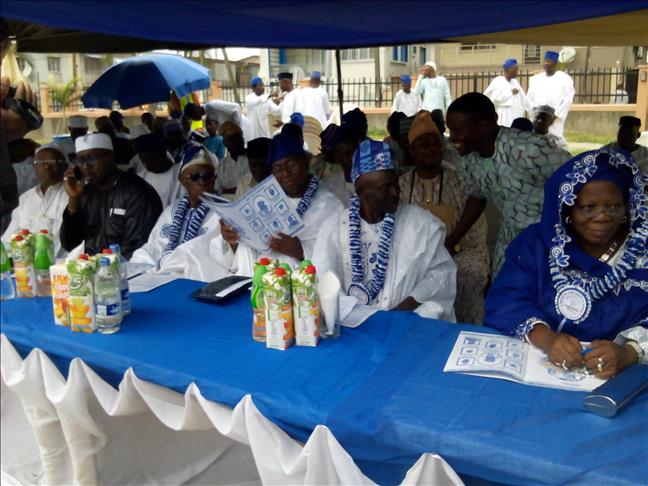
LAGOS
Rafiu Ajakaye
Nigerian Muslims are planning a mass gathering on Sunday in Lagos, the country's commercial nerve center, to pray for the nation – which is currently marking 100 years since unification – and make their political voices heard.
"Muslims comprising all bodies will on January 5 come together to pray for the nation and collectively address issues as they affect Muslims and society, thereon forging the essential unity in the interest of the people," Dish Kamor, a spokesman for the Muslim Public Affairs Center, one of the event's organizers, told Anadolu Agency.
"The event is tagged 'Muslims Pray for the Nation' and it is slated for 9am at the Tarawa Balewa Square, Lagos," he added.
Kamor said the event would bring together members of the Muslim community from across the spectrum, including leading academics and scholars of Islamic jurisprudence, such as Prof. Daud Noibi and Sheikh Habeebullah el-ilory, who heads Nigeria's largest Islamic and Arabic school.
Prof. Ishaq Oloyede, secretary-general of Nigeria's Supreme Council for Islamic Affairs (NSCIA), would also address the gathering, he added.
Security has been stepped up for the event, with police and army personnel to be deployed on the streets to preempt any disturbance of the public peace.
Lagos, cosmopolitan Nigeria's political capital until 1991, boasts a rich Muslim history, though it also has a significant and influential Christian population.
No official figure exists for Nigeria's Muslim and Christian populations, as religion and ethnicity were never used as criteria in previous national censuses.
But independent pollsters, including the US-based Pew Review, suggest that Muslims constitute at least 50 percent of Nigeria's estimated population of 175 million. Christians, however, dispute this figure.
-Political muscle-
Organizers are quick to point out that Sunday's gathering will be much more than just a collective prayer session.
"We will pray and make a positive statement within the state, across the nation and the world at large," Kamor said.
"We are here and very relevant to the growth of the state and Nigeria," he added. "We cannot and of course will not stop being relevant."
Asked about the timing of next week's prayer session, Kamor said the event would be "a wake-up call [for] all."
"We want to inform as well as educate," he asserted.
"There are over 50 percent Muslim population in the country," Kamor added. "They say we are dormant, but we know we are not."
Nigerian Muslims complain of certain public policies, which, they say, unfairly target their community.
The event will also be a way to draw the government's attention to a number of grievances voiced by Muslims in recent months.
In November, the NSCIA accused the government of President Goodluck Jonathan of the "systematic cleansing of Muslims" from key positions, especially in the security agencies, and lamented widespread "religious" discrimination against Muslims.
No Muslim has been appointed cabinet minister for the entire southern region, the council asserted, including in the southwest, where Muslims are said to constitute the bulk of the population.
There are 17 states in Nigeria's southern region, each having at least one cabinet minister.
The North, meanwhile, has 19 states, but appreciable numbers of cabinet ministers from the region are Christians.
The Sharia Council of Nigeria has also chronicled cases of systemic discrimination and violence against Muslims.
The government, however, has so far failed to respond to the allegations, which Muslim groups support with figures and dates.
Muslims say they aren't happy with certain government policies that they say target core pillars of their faith. These include moves to ban the hijab (Muslim headscarf for women) in public places, especially in schools, along with attempts to restrict Islamic Sharia to Muslim homes.
"More disturbing are some emerging government policies in Nigeria which appear to be less oblivious of the peculiar needs of Muslims, thereby fashioning laws which deny Muslims their right to be Muslims and practice their religion – even in their own communities," Kamor said.
Within this context, Sunday's prayer session appears to be an attempt to flaunt the strength of Nigeria's Muslim community in hopes of sending a signal to the government that ignoring their grievances could prove dangerous – both for parties in government and the country in general.
Nigeria is currently marking 100 years since British colonial governor Lord Lugard unified southern and northern Nigeria on January 1, 1914.
The country is also gearing up for a national conference this year that will tackle the sensitive issues of secularism and the role of Islamic Sharia.
englishnews@aa.com.tr




